On the first day of hunting season, Keith Lundbom perched in his deer blind in a tree, 20 feet above ground, and peered through his scope.
He didn’t realize how close he stood to the propane heater until his legs grew hot.
“I turned around and I was on fire,” he said. “It burned the boots off my feet.”
After suffering severe burns to the lower half of his body, Keith understands better than most the critical need for blood donations.
He has received multiple transfusions at Spectrum Health Butterworth Hospital—donations of blood that saved his life and helped him heal.
“Without that blood, I wouldn’t have made it,” he said. “It’s a good thing they had it there for me.”
Versiti Blood Center of Michigan has issued an emergency appeal for donors as the state’s blood supply dropped to a dangerously low level.
The supply of O negative blood has improved, but blood bank officials say there is still a great need for donations—and especially for O positive blood.
While lying in his hospital bed at the Regional Burn Center at Spectrum Health, Keith talked about his accident and recovery, hoping to raise awareness about the importance of donating blood.
Keith, 78, and his wife, Chris, live on an 80-acre property near Leroy, Michigan, south of Cadillac. They moved there after he retired from his job as a millwright at a General Motors plant in Flint.
Keith has more than 50 years of hunting experience, with both bow and rifle.
On Nov. 15, 2019, he hoped for another successful hunt as he climbed up to the tree blind on his property and looked for deer.
And then his camouflage suit caught fire.
He barely remembers how he got down to the ground. He recalls putting snow on his legs and trying to pull off his burning clothes.
“It was awful,” he said.
At home, Chris received a phone call from her husband.
“He just hollered, ‘Chris!’” she said. “I thought maybe he had fallen.”
She got in her car and headed toward Keith’s tree stand—and met her husband driving toward home, wearing only a burned shirt. Blisters covered his bare legs.
She drove him to a local hospital emergency room, where medical staff arranged for him to take an Aero Med flight to Spectrum Health.
“He had severe burns basically all over the entire lower half of his body and coming up to the belly and back area,” said Douglas Kwazneski, MD, a Spectrum Health trauma surgeon. “The skin was totally dead—the skin and the fat—it was gone.”
Among the many challenges involved in such severe burns is a loss of blood and fluids.
Blood transfusions helped keep Keith alive as his medical team worked to treat the burns and protect his other organs.
“We need to keep people’s blood levels at a certain point,” Dr. Kwazneski said. “Otherwise their heart, their lungs and their kidneys will shut down.”
In time, they began a series of skin grafts. Again, Keith received blood transfusions to help the grafts heal and his body handle the surgeries.
After 60 days in the hospital, Keith can get out of bed and walk short distances, with help from physical therapists.
In addition to his medical care, he has benefited from support from his large family—four children, 10 grandchildren and 15 great grandchildren.
“I don’t know how he had the wherewithal to do all this,” Chris said, as she sat beside her husband’s hospital bed. “He is a trouper.”
“It’s incredible how well you are doing,” Dr. Kwazneski agreed. “We are so proud of you.”
“I am better,” Lundbom said. “That’s the only thing that keeps me going.”
In years past, he donated blood occasionally at blood drives. He joked that he might have done it just for a break from work.
Now, he looks forward to the day he is fully recovered—and could be a blood donor again.
Dawn Kaiser, area vice president of Versiti Blood Center of Michigan, said the blood shortage occurred when donations dropped in December. With high schools and colleges on break, families enjoying the holidays and the flu season ramping up, fewer donors rolled up their sleeves to give blood.
Since news of the impending crisis got out, donations have steadily increased.
At Spectrum Health locations, Versiti collected 550 units of blood in the first two weeks of January. Employees rallied to help, resulting in Spectrum Health contributing more than 11% of all blood donations in the state of Michigan. At Versiti locations, people also heard the call and rallied to save lives by donating a pint.
“For the people who came out when we made this call to action, we say, ‘Please come back,’” Kaiser said. “We can prevent this (kind of shortage) in the future. Just like getting your hair cut, this should be part of your routine.”
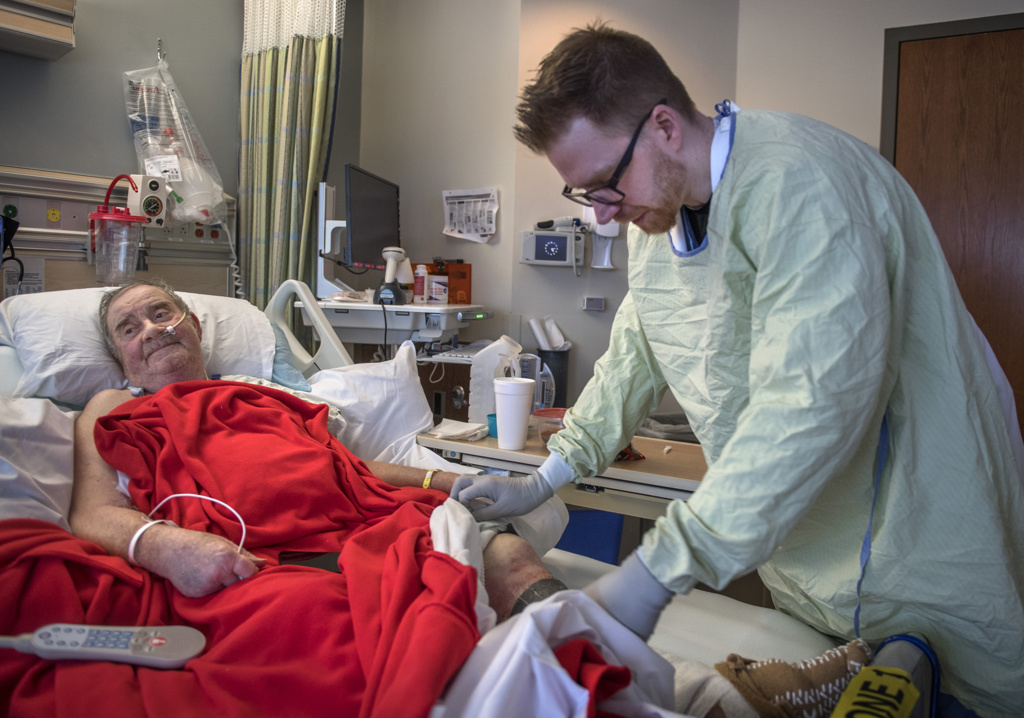
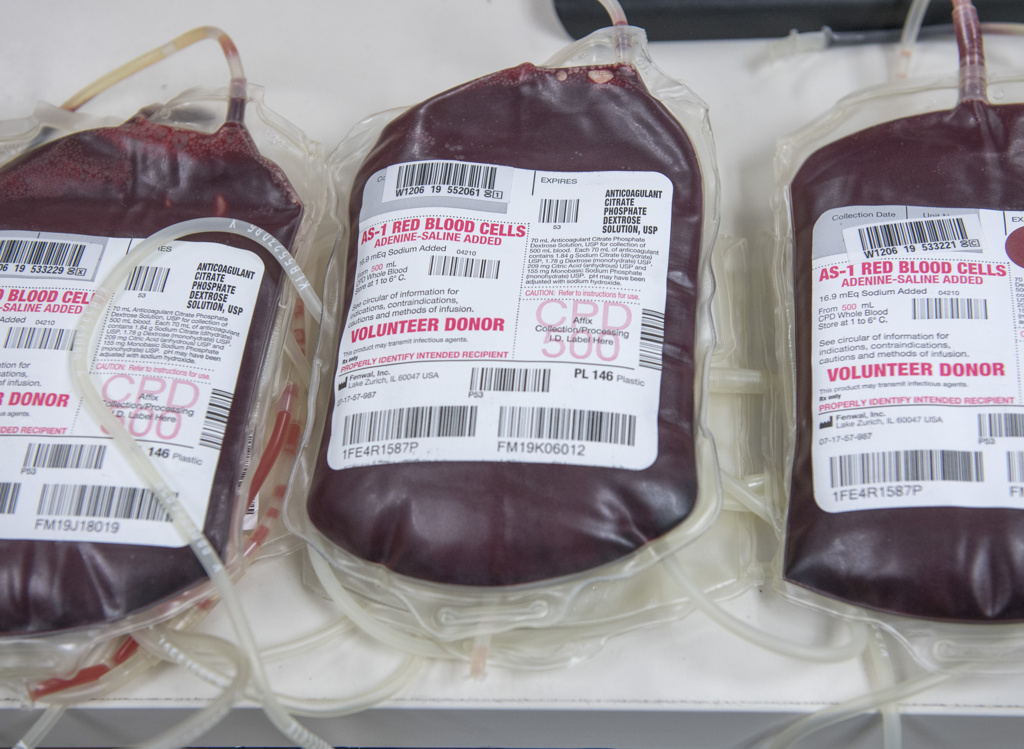
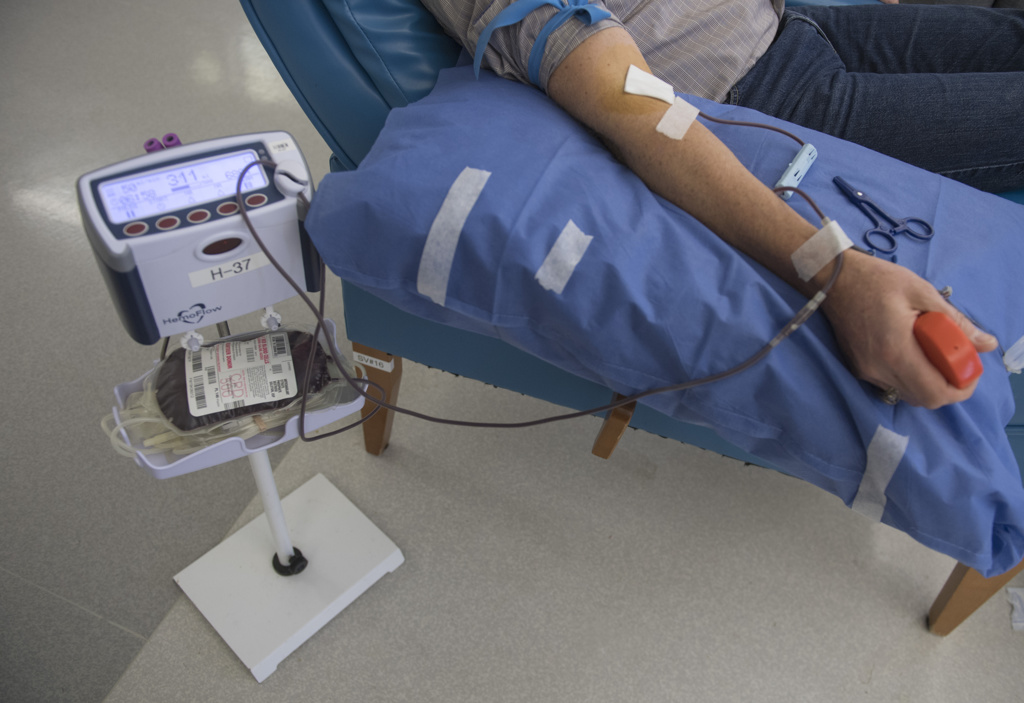
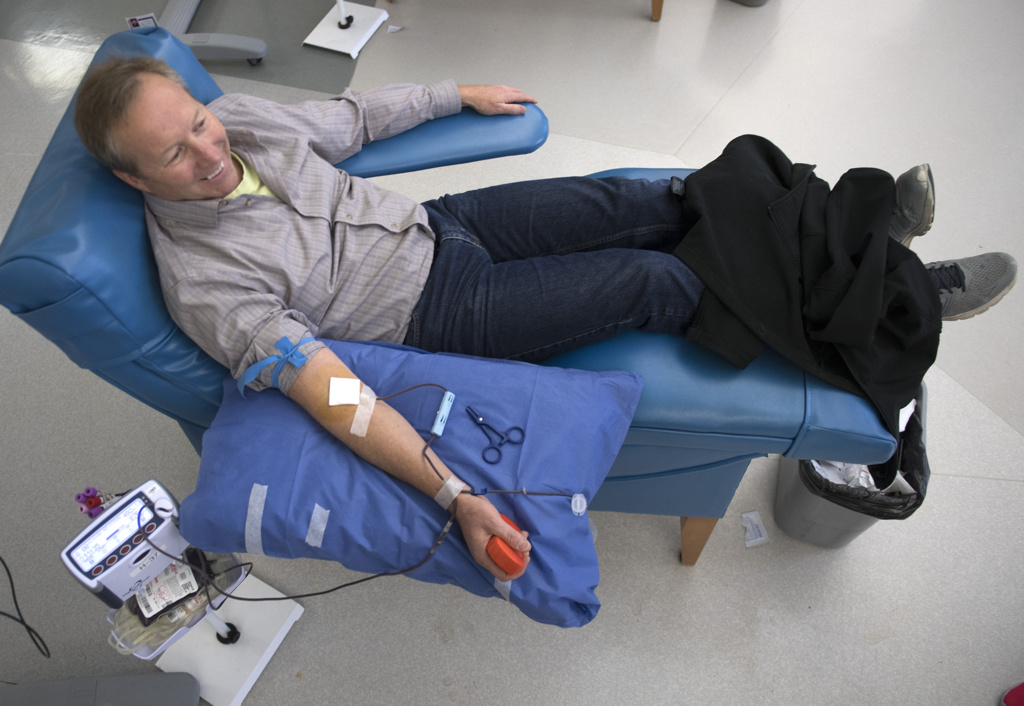
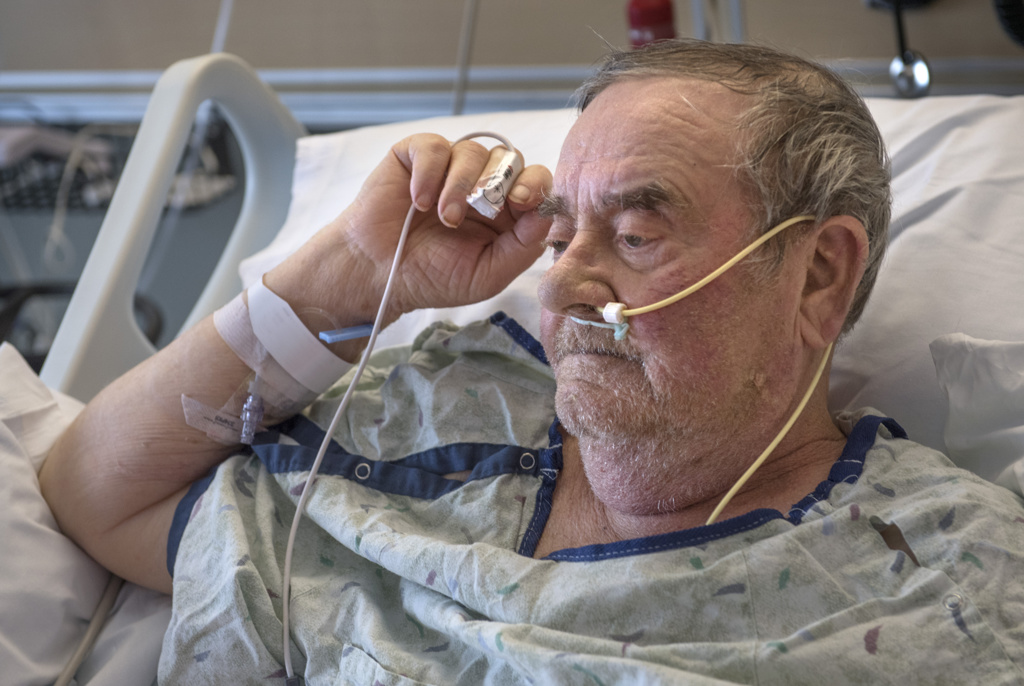
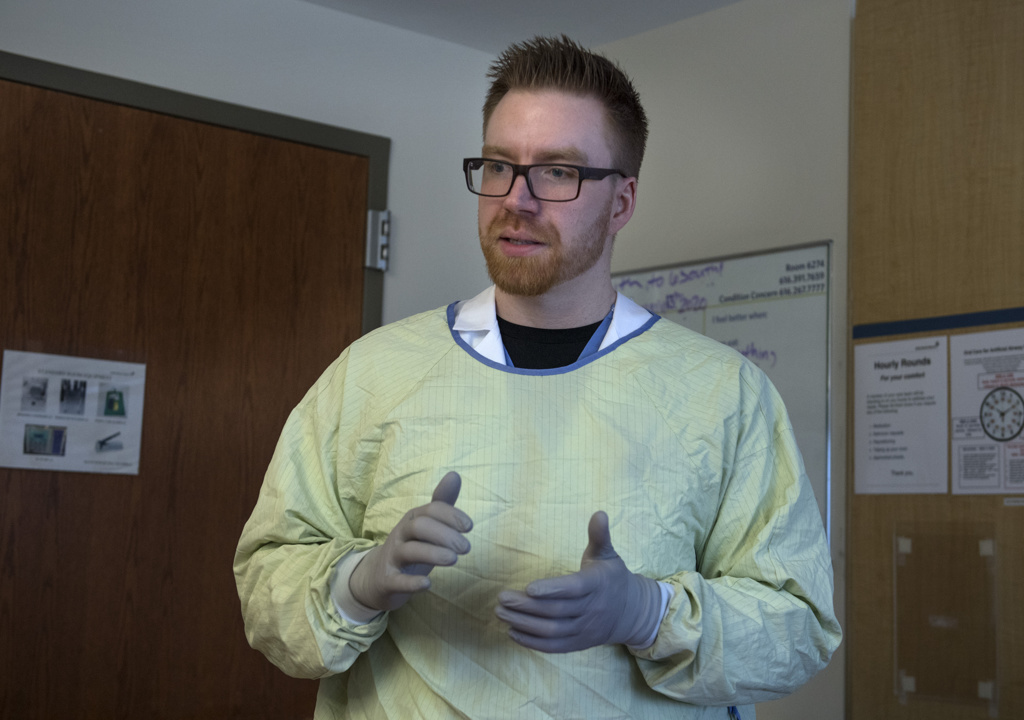
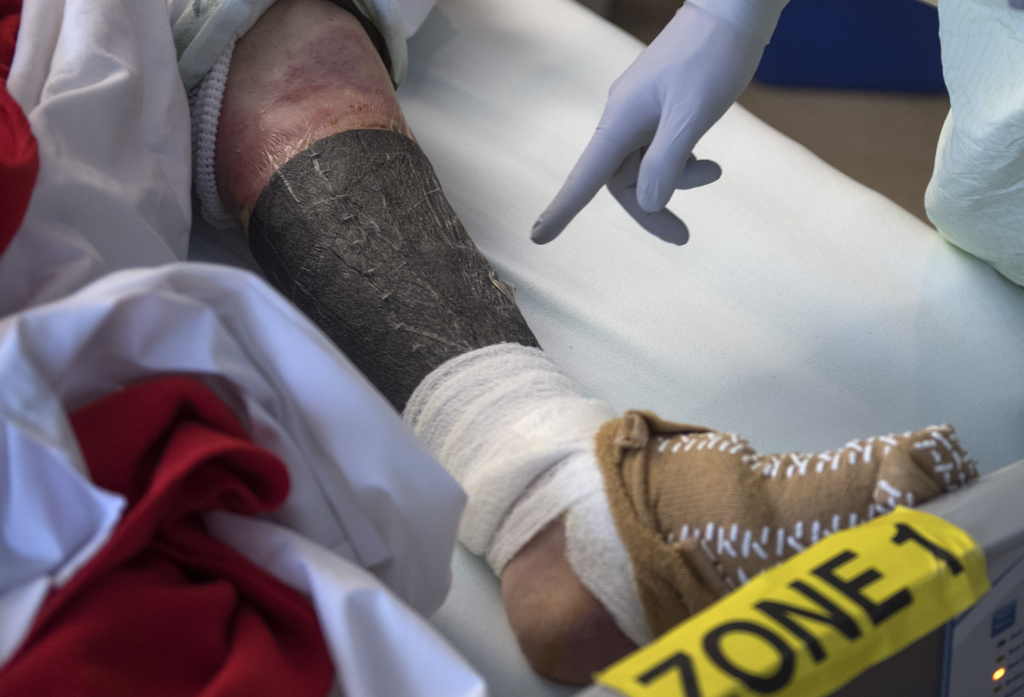
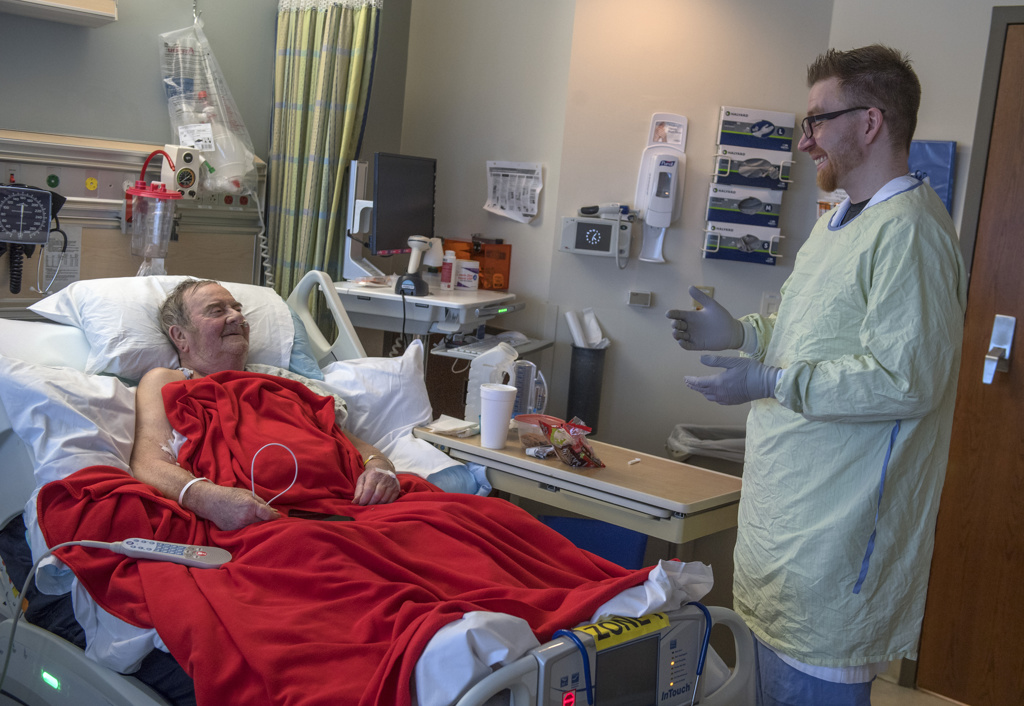
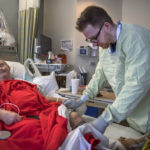
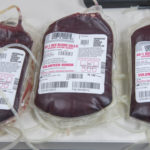
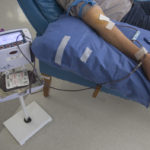
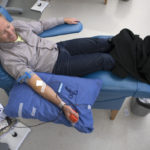
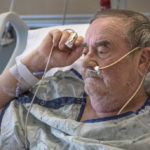
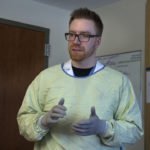
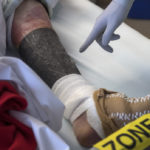

 /a>
/a>
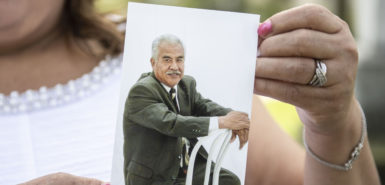 /a>
/a>
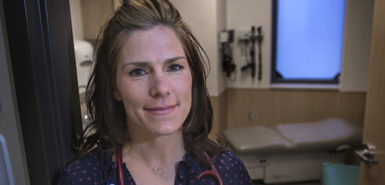 /a>
/a>
Keith & Chris
I know in the end Keith will be stronger than ever. You have a strong family. I will give blood at legion next Wed. Know you are in my mind almost daily.
Thank you, David, for your kind words and your blood donation. Every pint makes a huge difference in saving lives.
Our friend certainly is lucky to have received such good care and dedicated volunteers who donated their life savings blood to aid in his recovery.
Thank you, Anja, for your kind comment! We’re thankful he’d like to help get the word out about blood donations. He’s a remarkable man.
I gave blood (O+) until I had a couple DVT and was put on blood thinners now they won’t let me give. Absolutely worth doing to help others.
Thank you so much for all your past donations, David. You certainly saved many lives. And hope you’re doing well now! Cheers, Cheryl (Health Beat editor)
We are friends of Keith and Chris for almost 40 years. Last April my husband had a AAA rupture. It was the blood he received that saved his life and nicknamed him the miracle man. We are praying for Keith’s total recovery and understand the need for donating blood Thanks to all the people who give life so selflessly. We thank you every single day
Thank you so much, Donna, for sharing your testimony about how blood saves lives. Best wishes to you, your husband and all who make the world a better place.